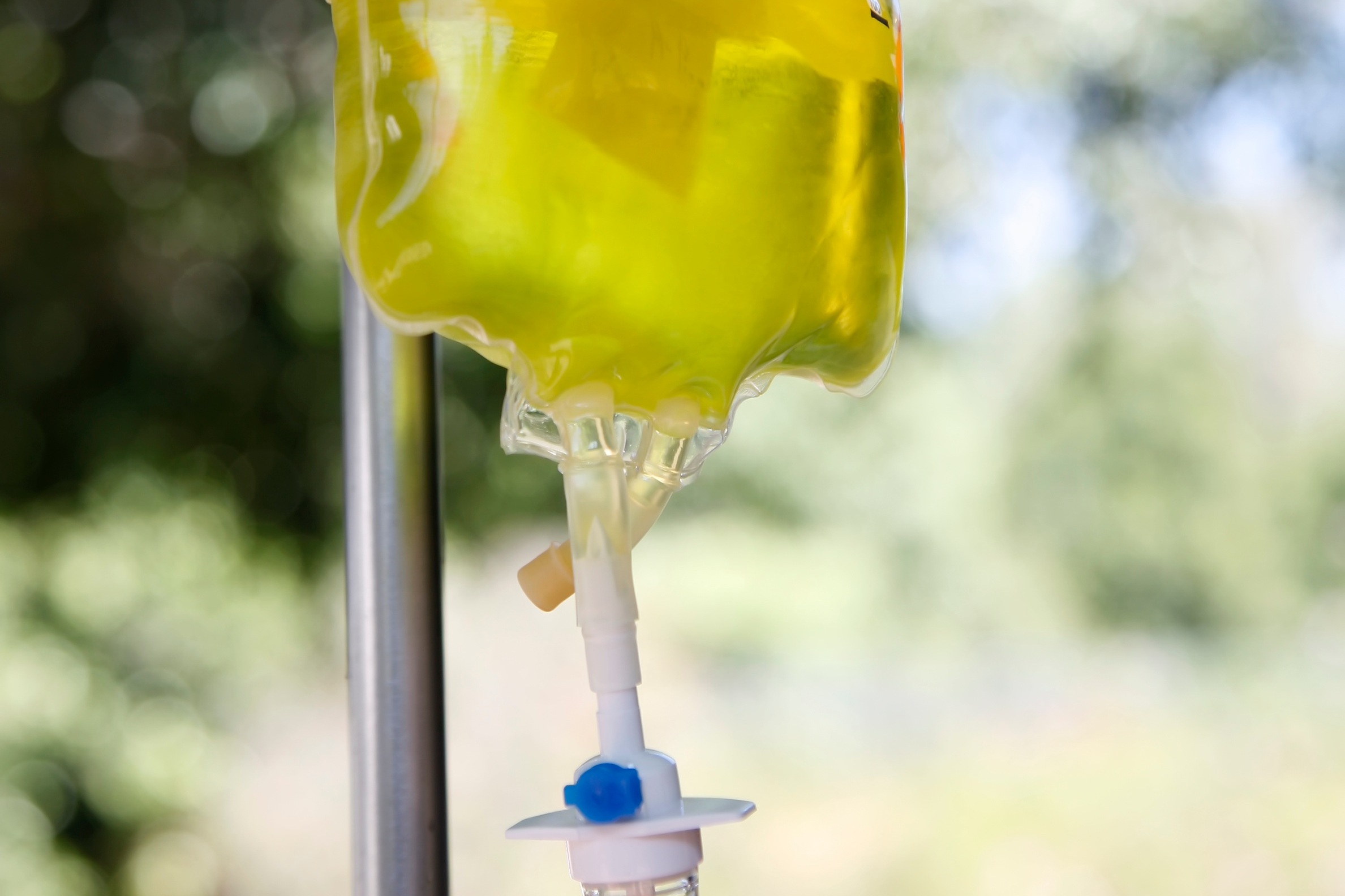It’s no secret that many people have a tough time sticking to their New Year’s resolutions. One reason for this may be that they lack a clear and proactive plan of attack.
It’s not enough to just say: I’m going to eat healthier and workout more. You have to be intentional and specific:
I am going to remove ultra-processed foods from my diet and eat a serving of veggies at every meal.
I am going to strength train three times a week and get up from my desk at work every 30 minutes to move and stretch.
I am going to have a regular bedtime so that I can get good quality sleep, feel rested during the day and be less tempted to reach for office sweets when I feel low energy.
In addition to being very intentional, you have to think about what the “missing ingredient” may be to achieving your goals every year. And in my opinion, one missing ingredient may be staying nutritionally balanced through the use of IV vitamin drips and injections.
Although we should be getting most of our vitamins and minerals from consuming a healthy, nutrient-rich diet, it’s pretty much inevitable that all of us will suffer nutritional imbalances and/or deficiencies at some point in our lives.
Reportedly, 9 in 10 Americans do not absorb or consume the required amounts of one or more key nutrients from the foods they eat. Some of these nutrients include potassium, dietary fiber, choline, magnesium, calcium and vitamins A, D, E and C.
Take me, for example. I have nutrient absorption issues with vitamin C despite eating very healthily. It’s genetic, so I have to address this with vitamin therapy in addition to eating a vitamin C-rich diet.
Other reasons why we may suffer from nutritional imbalances and deficiencies include:
Aging. As we get older, our bodies have a harder time absorbing nutrients from the foods we eat.
Medications. Both prescription and over-the-counter (OTC) drugs deplete vitamins and minerals from the body.
Not consistently following a healthy, nutrient-rich diet.
If your New Year’s resolution is to lose weight, what you may not know is that nutritional deficiencies and imbalances may prevent you from achieving your weight loss goals and maintaining a healthy weight.
Examples of nutrient deficiencies that may stand in the way of your resolution to lose weight?
Magnesium. This nutrient is one of the major minerals inside our bodies’ cells. Outside of the cells, it is an important cofactor for hundreds of processes and reactions in the body, including energy. Studies with rats have shown that a low magnesium level can slow down the growth of lean body mass (muscle and bone building) and promote an increase in body fat. Some healthcare professionals also believe that people with low magnesium tend to have high blood sugar.
Phosphorus. People who are overweight or obese tend to have high-carb diets (including processed, nutrient void carbs like white rice, white bread, pasta and sweets). And one theory is that high-carb diets increase insulin release, which creates a reaction that consumes a lot of phosphorus. This could mean the phosphorus in the body isn’t available to do other reactions in the body, like burn off food. This low metabolism gets mistranslated to the body as “not enough food,” which may cause us to eat more. Supporting this theory is that high levels of phosphorus in the body are linked with lower body weight.
Iron. This mineral may be critical for the energy you need to increase your physical activity. Iron is needed to make hemoglobin, a component of your red blood cells that delivers oxygen to all the cells in your body. Without adequate iron, your body can’t carry enough oxygen to your vital organs. Low iron levels may leave you feeling quite tired. So you can probably imagine that if you have low iron, you may not feel up for going to the gym and working out (which along with diet, is key in weight loss). Furthermore, excess weight appears to be associated with iron deficiency. One study reported by the National Institutes of Health (NIH) suggested that the treatment of iron deficiency anemia induced weight loss and improved metabolic parameters.
B vitamins. There is some evidence that non-optimal levels of vitamin B12 may increase the likelihood of obesity. B vitamins are also important for the maintenance of adequate energy levels you will need to complete any weight loss program.
At the pH Drip Lab, we offer all sorts of vitamin “cocktails” that can help you avoid these nutritional deficiencies. Not only may these vitamin injections and pushes help you with your New Year’s resolution, but it also may boost your immunity and help with other health issues.
Check out some of the testimonials from the Proactive Health Labs Yelp page:
Love this place. Everyone's friendly and cool, and man oh man, the shots work. Was down for the count with a nasty cold for a couple weeks, got the B Complex, day and a half later, i was human again. So great!
Amazing staff and experience from start to finish at PH LABS. Came here for the IV service and can't wait to feel the results. Thank you everyone for your knowledge, expertise and being so hospitable from the moment I walked in. If you're looking for IV services for a quick pick me up highly highly recommend this spot!
This place is great! I came in for a Meyer's drip and they had that plus the super-antioxidant Glutathione which I need right now for some health recovery stuff. Really happy I found this place and would be back weekly if I was staying in LA!
Wasn't feeling well, run down from work and lack of sleep. I been doing vitamin shots for awhile now, and they work for me. I just moved to the area, so I needed a new place. I found them, and saw that they offered vitamin drips. I heard about them and read up on them, so I was game. The staff and doctor were very friendly. The whole process was painless. I think it helped me. I will definitely be back.
After an exhausting run of project at work knew I needed to revive and get healthy again. Stress and time on my feet had run my body down. Came into Proactive Health Labs for an IV drip and chose the Meyers. Super friendly staff, comfortable surroundings, and most important a clean and safe place to have an IV put in. Extra touches like alkaline water and even some aromatherapy. Will definitely be back. Recommend.
So there you have it. Whatever your goals or issues may be, the pH Drip Lab can definitely get you on the road to success. And don’t forget to schedule routine nutrient tests in order to identify any nutrient imbalances or deficiencies you may have. If the test reveals you have too much or too little of a certain nutrient, a competent healthcare professional can work with you on making the necessary dietary changes and recommend what vitamin drips or injections are appropriate.
Enjoy your healthy life and happy almost New Year!








